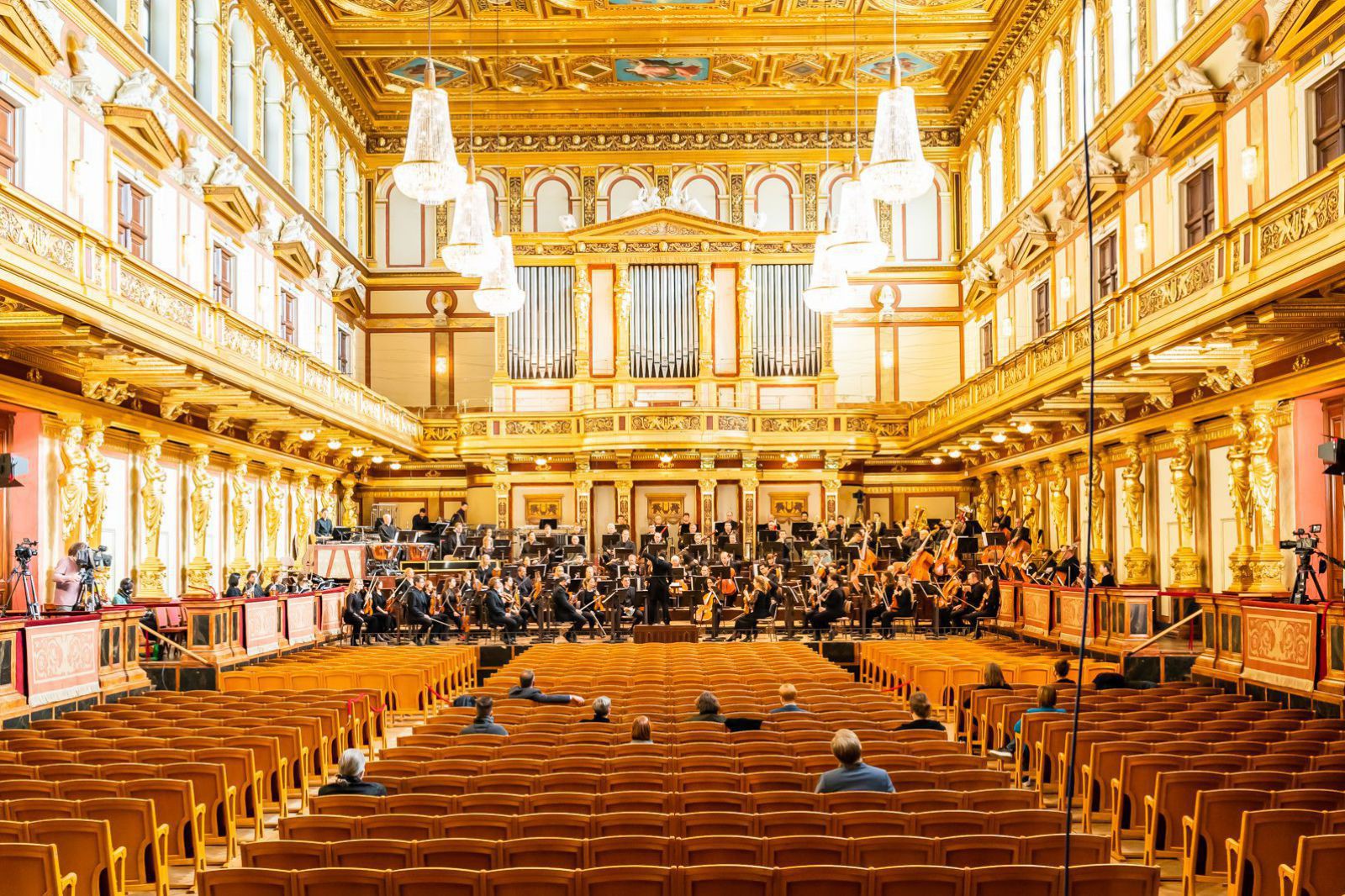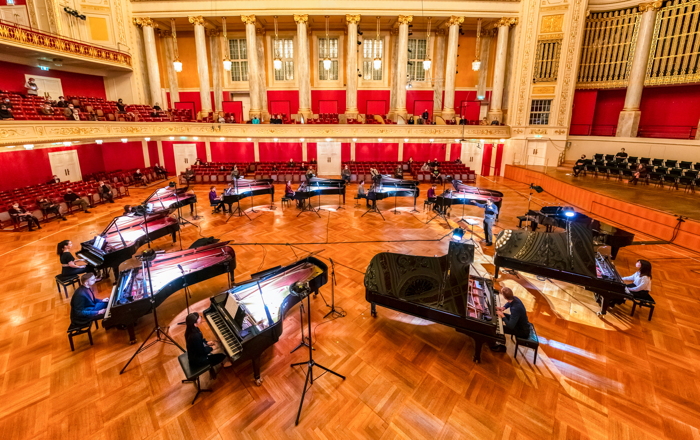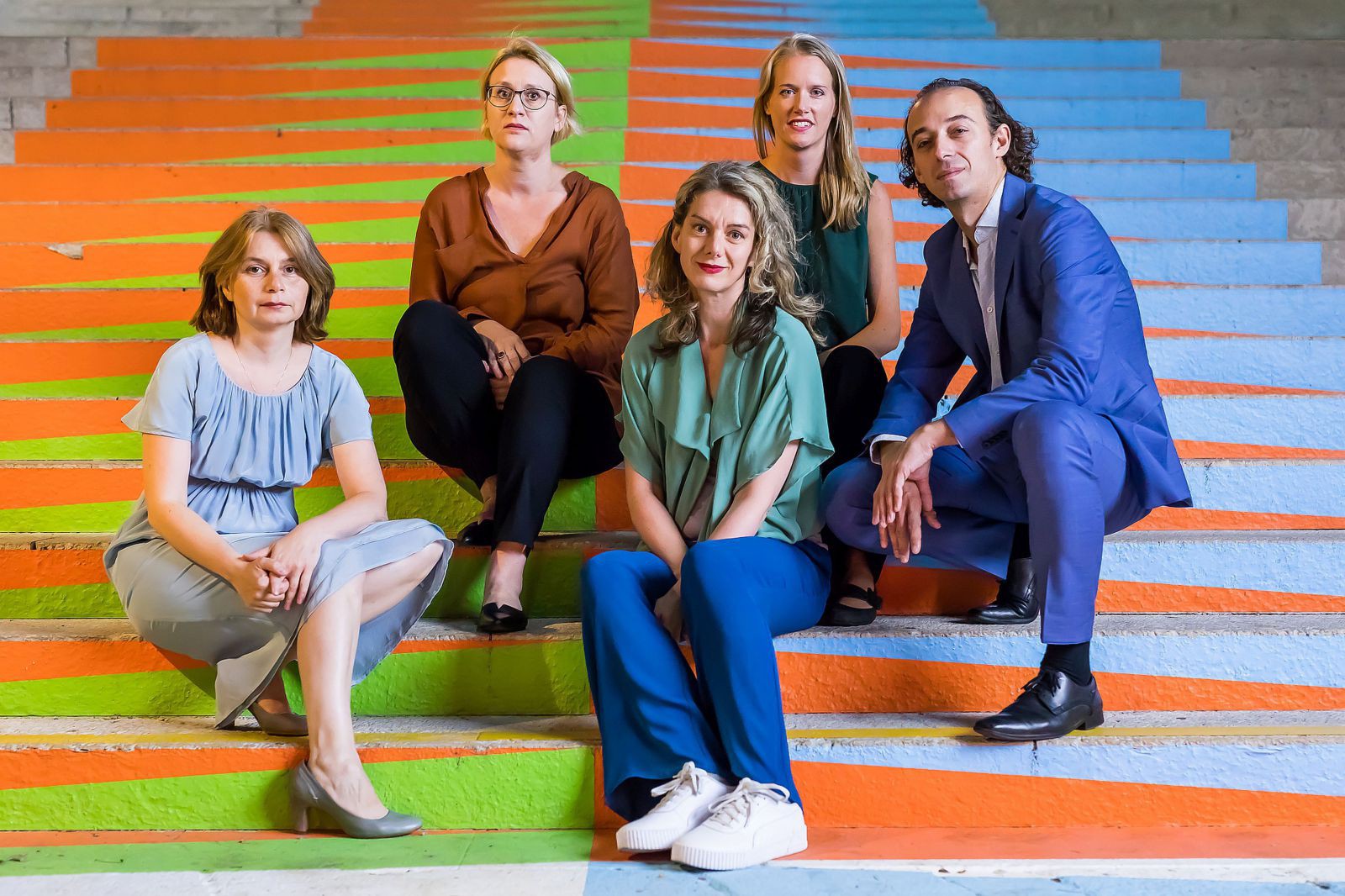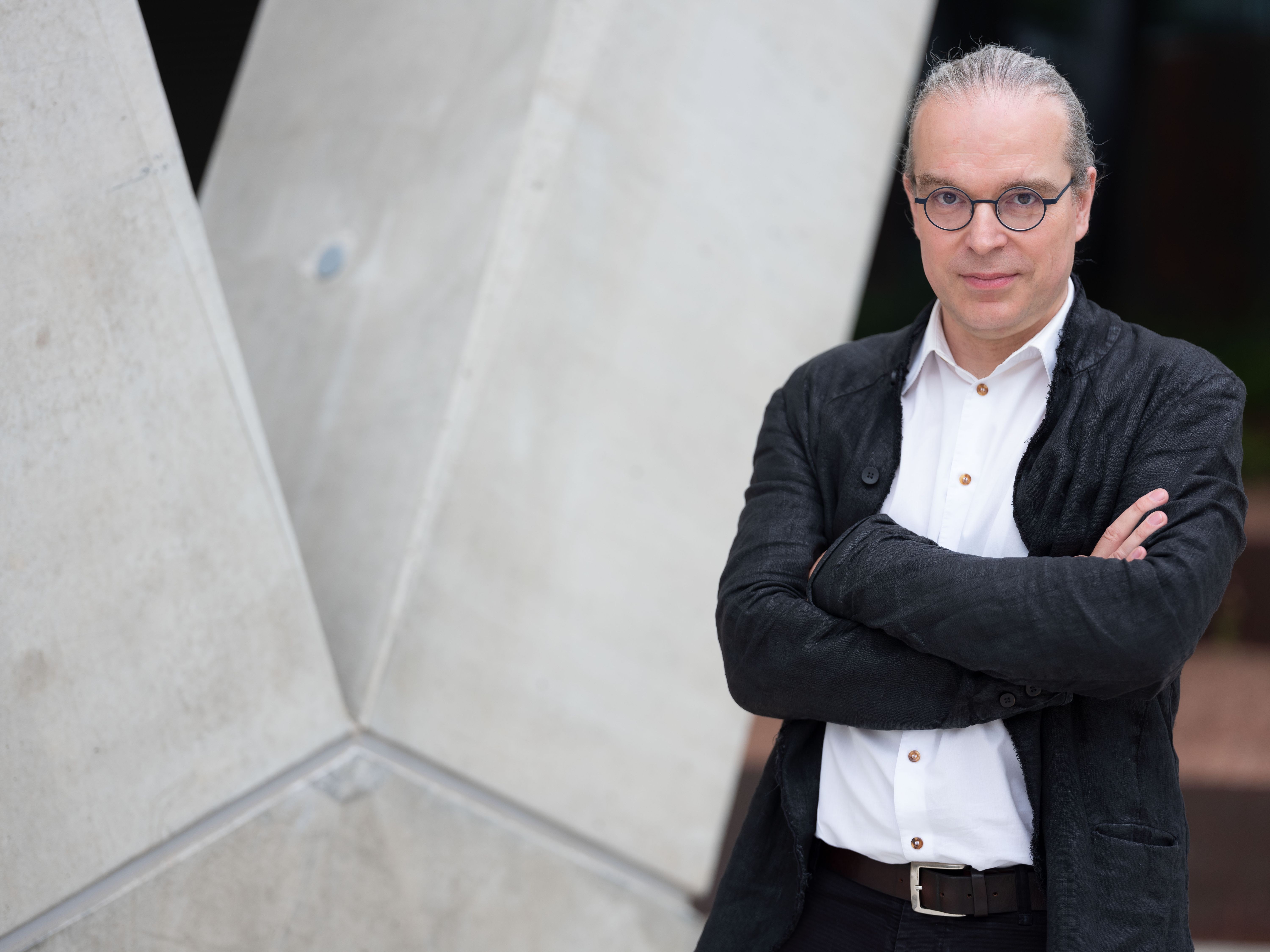SONIC MATTER Festival to start in Zurich
What does the city sound like underground? Does music sound different when it’s played for a single person? Can it help to survive in a damaged ecosystem? December 2 to 5 2021, artists and festival organisers of SONIC MATTER Festival in Zurich will be looking for answers to these and other questions of our time.
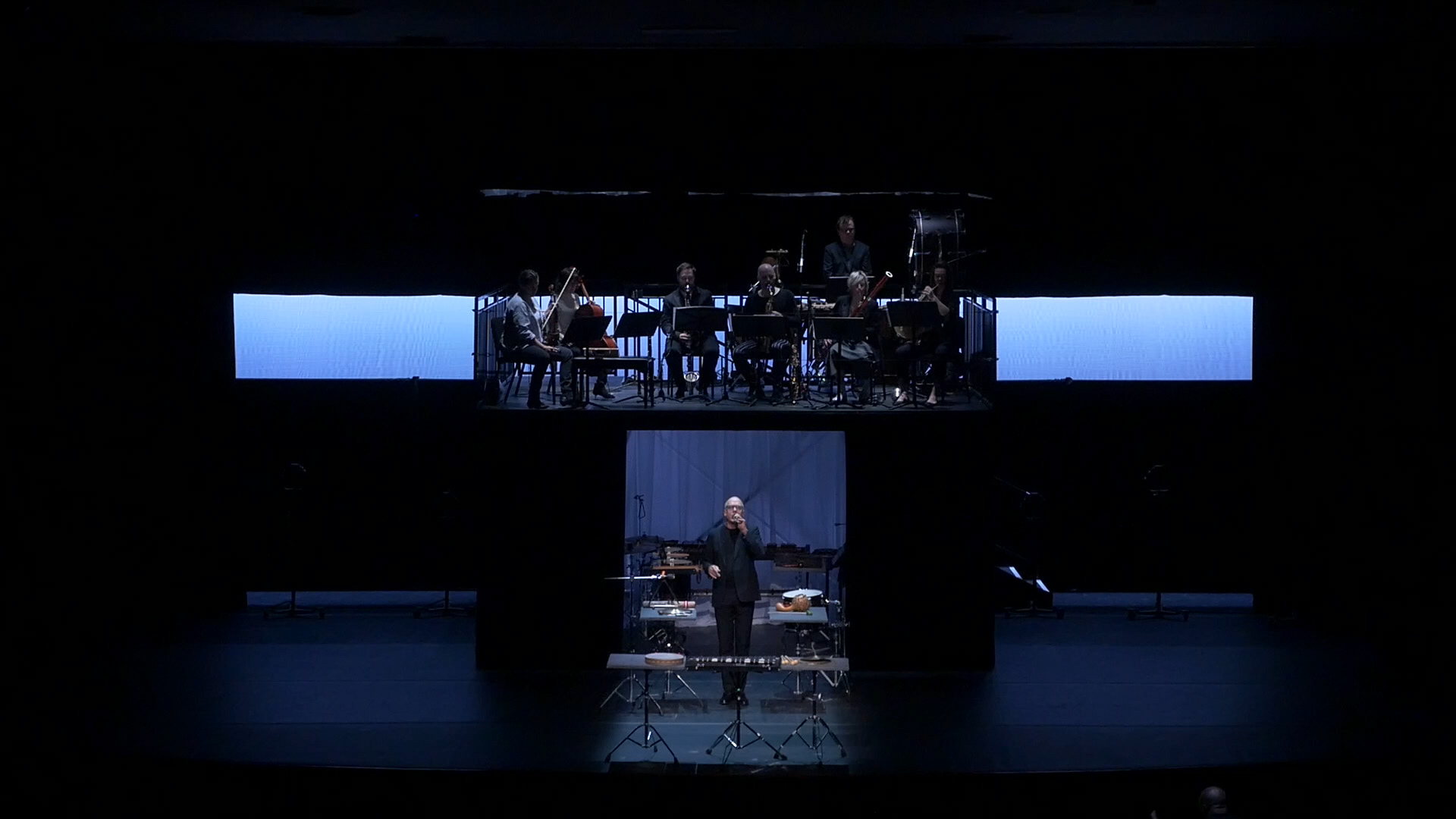
Friederike Kenneweg
This year’s festival motto is TURN. Different formats, like of course concerts, but also exhibitions and round tables, address such moments of change in music, but also in environment and society.
The Walcheturm art space, for example, will be transformed into a 48-hour listening and video lounge during the festival under the title “weichekissenheisseohren”.
Danceable music, anticipating the catastrophe
At the same venue, Andreas Eduardo Frank explores the relationship between „Musik&Katastrophen“ (“music & catastrophes”) in the “border line club culture”. Being electrified, expecting the inevitable, tense and on the verge of discharge – Frank translates this pandemic era attitude to life into electronic music with his synthesiser. The tense audience can let the steam out by dancing. At the end of the festival, the GLENN will loudly invite the Walcheturm art space audience to dance.
Process-oriented and sustainable
The festival should be process-oriented and sustainable, as artistic director Katharina Rosenberger put it in an interview with SRF 2 Kultur in May 2021. The composer has founded a collective with artist and director Julie Beauvais and cultural manager as well as music journalist Lisa Nolte to manage the festival. The three women attach great importance to long-term cooperation with artists and the continuous development of contact with the audience. That’s why they also have a SONIC MATTER website, serving as platform for artistic exchange, research and encounters. Some of the results of this collaboration will be presented during the festival.
SONIC MATTER_OPENLAB, for example will feature works by artists, scientists and activists from Bolivia, Canada, Ecuador, the USA, Brazil and Switzerland in a joint performance. From very different places in the world, all these actors use their respective means to draw attention to the threats facing our planet. In a deep listening experiment, these different voices, approaches and perspectives are made accessible to the audience.
The SONIC MATTER_village explores the sound of Zurich’s city districts together with its residents. Audio pieces have been created during workshops with residents and will be presented in the festival programme.
The opening concert at the Schauspielhaus Zurich will feature the International Contemporary Ensemble from New York under the title CONNECTIVITY. The programme includes compositions by George Lewis, Nicole Mitchell, Helga Arias and Murat Çolak. A work by the Swiss composer Jessie Cox from Biel, but currently studying in New York and very recently premiered at Lucerne Festival Forward, will also be performed.
Jessie Cox’s Black as a Hack for Cyborgification, world creation 2020 online (concert recording october 7th 2021 with International Contemporary Ensemble, Target Margin Theatre in Brooklyn) will be performed at concert CONNECTIVITY.
The orchestra’s sensuality
Entirely in the spirit of the festival’s motto, the orchestra concert in the Tonhalle Zurich will feature Dieter Ammann’s 2010 work TURN, which traces the transformation from one state of things to another with the means of the orchestra. “Exactly where the music becomes quite clear, easily graspable for the listener, the turn happens, a turning point at which the previous sonority completely implodes and abruptly changes into another sound image,” says Dieter Ammann about his work. “It’s comparable to a scene on a stage, where lighting and technology suddenly create a new atmosphere.”
Dieter Ammann, Glut for orchestra, world premiere september first 2019 Lucerne Festival Academy, conductor George Benjamin, inhouse-production SRG/SSR
Das Stück für großes Orchester dropped.drowned von Sarah Nemtsov aus dem Jahr 2017 spielt auf feinsinnige Art mit den Klangfarben des Orchesters und macht im Gegensatz dazu Wandlungsprozesse erfahrbar, die sich eher allmählich vollziehen.
Chasing the sound of the city
Those who want to tune their ears to this kind of sensuality by listening to the sounds of the city can do so on Friday afternoon during a listening walk with sound artist Andres Bosshard, who will set out from the viaduct at the Markthalle in search of special soundscapes or tranquillity and listen, among other things, to the water murmuring of the river Limmat.
At the sound trail “Unter der Klopstockwiese” by sound artist Kaspar König, Zurich’s sound is presented from a completely different perspective: from down below. „Begehbare Hörlandschaft unter der Erde“ (“walkable listening landscape under the earth”) opens a distorted listening world, turning familiar sounds into something alien: enraptured and ghostly.
Friederike Kenneweg

Julie Beauvais / Lisa Nolte / Katharina Rosenberger, Andres Bosshard, George Lewis, Nicole Mitchell, Helga Arias, Sarah Nemtsov, International Contemporary Ensemble, Kaspar König
FESTIVAL SONIC MATTER, 2.-5.12.21:
SONIC MATTER_OPENLAB
SONIC MATTER_village
concerts mentioned:
2.12.21, 20h, Schauspielhaus Zürich Schiffbau-Box: CONNECTIVITY,
3.12.21, 19:30h, Tonhalle Zürich: TURN
5.12.21, 19h, Alte Kaserne: DIĜITA
broadcasts SRF 2 Kultur:
Musik unserer Zeit, 8.12.21, 20h: Sonic matter – ein neues Festival in Zürich, Redaktion Moritz Weber
neoblog, 11.11.21: neue Hörsituationen für neue Musik – Lucerne Festival Forward / u.a. zur UA von Jessie Cox, Autorin Gabrielle Weber
neoblog, 17.11.20: musique de création – Geheimtipp aus Genf im GdN Basel: Gabrielle Weber: Interview mit Jeanne Larrouturou zum Projekt Diĝita
neo-profiles:
Festival Sonic Matter, Katharina Rosenberger, Jessie Cox, Dieter Ammann, Andreas Eduardo Frank, Ensemble Batida, Kaspar König


